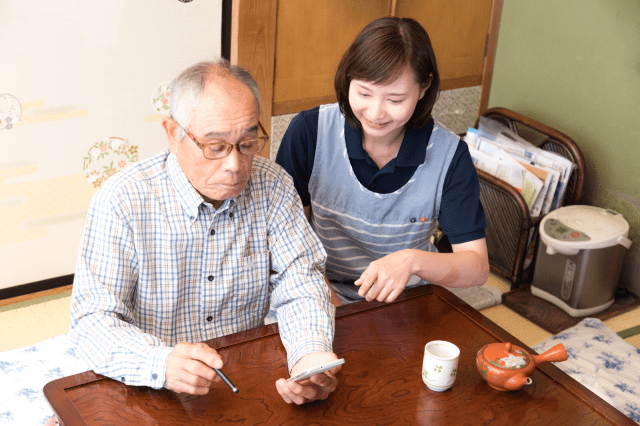
Attending the company’s “forget the year party” is all but required in Japan, but there are ways out, say the people who came up with these five fibs.
With the year winding down, workers across Japan are looking forward having a few days off at the end of December/start of January, since New Year’s is the most important holiday in Japan. At the same time, though, many of those same workers are dreading their company’s annual bonenkai.
Literally translating as “forget the year party,” bonenkai are end-of-the-year celebrations, generally held in the second half of December. Like most company functions in Japan, they’re ostensibly supposed to be an opportunity for coworkers to kick back and have fun, spending some time together outside the strict, businesslike atmosphere of the office, and in the process improve channels of communication and boost solidarity. In reality, though, many people find them about as enjoyable as Japan’s loathed company trips. A bad bonenkai is little more than tensely drinking with your bosses, nodding and murmuring fake interest and understanding while waiting for the unfun festivities to wrap up so you can go home.
Of course, you could sidestep all that by simply not going, but in team-oriented Japan, that’s easier said than done. If you’re going to skip a bonenkai, you need a good excuse. Luckily, weekly news magazine Spa has put together a list of five candidates, based on interviews with people who successfully used them to get out of their workplace’s year-end party.
Let’s take a look at them, plus examine their strengths and weaknesses.
1. “I’ve been invited to my friend’s after-wedding party that day.”
Because bonenkai are usually held on weeknights, after work, a key element here is that you need to say it’s your friend’s after-party you’ve been invited to, not the wedding ceremony or reception. Most weddings in Japan are held on weekends, but in recent years there’s been a trend towards smaller ceremonies and receptions attended only by immediate or close family. Then, at a later date, the newlyweds will have an after-party with just their friends, often renting out a restaurant for the celebration. It’s not unusual to have an after-party on a weeknight, and making the fib extra-plausible is the fact that people in Japan often keep their circles of work and private acquaintances separate, so it won’t be too shocking that you’ve never mentioned your just-married friend to anyone in the office before.
2. “My doctor says I can’t drink anymore, because of my uric acid level, cholesterol, etc.”
“Forget the year parties” are called that because you’re supposed to wipe the slate clean of any lingering sadness or stress that’s built up over the last 12 months, thereby giving yourself a fresh start in the new year. You could argue, though, that the bigger reason the parties are called bonenkai is that some people pound enough booze at them to cause memory loss.
As with most social functions in Japan, the booze flows freely at a bonenkai. Of course, if you say you can’t participate because of health reasons, someone might suggest you just drink soft drinks, so Spa recommends supplementing your story by saying “If I see everyone else drinking, I’ll be tempted to drink too.”
The downside, of course, is that once you say that, if you somehow get roped into going anyway, you’ll be spending the whole time stone sober, which will make it all the more difficult to put up with your boss’ drunken jokes and pontifications.
3. “My spouse’s parents are coming over to our place and spending the night that day.”
There are a few things that make this one kind of tricky to pull off. First, obviously, you have to be married, and second, your spouse’s parents have to be living somewhere far enough away that it would make sense for them to be staying with you instead of just hopping on the train, going home, and sleeping in their own beds after their visit.
However, if you’re a foreigner working in Japan, you could easily switch this to “My parents are coming from overseas and staying at my place.” There’s a risk here too, though, since Japanese people tend to be extremely interested in what travelers from overseas think of their country, and you’re likely to later get asked where you took your mom and dad, what they thought of Japanese food, and a whole host of other questions you might need to spin an entire web of lies to answer.
4. “I have a business dinner with Mr. X from Company Y that night.”
Another high-level technique, this one requires you to have a job in which you have out-of-the-office meetings with people from other organizations. Also, since you’re missing the bonenkai for an ostensibly work-related reason, you’ll need to produce something to justify your absence, even if it’s just a vague list-like report of the topics you supposedly discussed (and, of course, came to no significant agreements regarding).
The deepest potential pitfall here, though, is that you’ll probably need someone to corroborate your story, since making up an entirely fictitious company and person makes it easy to get caught. The interviewee who did manage to skip a bonenkai for this reason was able to find a counterpart in another company who didn’t want to go to his office bonenkai either, and by telling their respective bosses that they were meeting up with each other for a business dinner, they were both able to get out of their parties.
5. “It’s my spouse’s birthday, and if I don’t take them out to celebrate, they’ll get really upset.”
This one has a lot going for it. Most Japanese people don’t discuss their love lives in that much detail with their coworkers, which works to your advantage in two ways: there’s a good chance no one in the office knows when your spouse’s birthday actually is, and since most people won’t want to pry, you’ll probably get far fewer questions than you would with the “my parents are in town” ploy.
However, something that separates this tactic from all the others is that this one is permanent. Wedding after-parties are a one-time thing. Family visits and business dinners don’t occur in precise, recurring patterns. Heck, you can even get your excessive drinking down to a level where your alcohol intake isn’t damaging your health anymore. But barring a divorce and remarriage, your spouse’s birthday is going to be on the exact same day every year.
That means that if you play this card, you’ll need to remember the falsified date for as long as you remain with that company, and make sure never to contradict it in any subsequent conversations with coworkers. However, the upside is that if you can do that, you’ve got a permanent excuse to get out of any future company parties that happen to take place on that day.
The downside, though, is that you’ll no longer be able to use your spouse’s actual date of birth as an excuse, which means when their real birthday rolls around, you might be stuck having to attend some other after-hours office function, making the part about your spouse being angry at you entirely honest.
Source: Livedoor News/Spa via Jin
Top image: Pakutaso
Insert images: Pakutaso (1, 2, 3, 4, 5)






 Young Japanese women pick least favorite ways they feel pressured to socialize with coworkers
Young Japanese women pick least favorite ways they feel pressured to socialize with coworkers Japan’s bonenkai parties are the worst thing about the end of the year. Here’s how to fix them
Japan’s bonenkai parties are the worst thing about the end of the year. Here’s how to fix them Could Pen-Pineapple-Apple-Pen be the start of a new form of workplace harassment in Japan?
Could Pen-Pineapple-Apple-Pen be the start of a new form of workplace harassment in Japan? Ibaraki Prefecture marketing chief regarding their capital city: “Mito sucks! Die!”
Ibaraki Prefecture marketing chief regarding their capital city: “Mito sucks! Die!” Tokyo “couple-busting” company finds who your spouse is cheating with, becomes friends with them
Tokyo “couple-busting” company finds who your spouse is cheating with, becomes friends with them Foreigner’s request for help in Tokyo makes us sad for the state of society
Foreigner’s request for help in Tokyo makes us sad for the state of society Seaside scenery, history, and so many desserts on Yokohama’s Akai Kutsu【Japan Loop Buses】
Seaside scenery, history, and so many desserts on Yokohama’s Akai Kutsu【Japan Loop Buses】 Japanese city loses residents’ personal data, which was on paper being transported on a windy day
Japanese city loses residents’ personal data, which was on paper being transported on a windy day Japan’s summertime towelket pillowcases are even better with the addition of Ghibli stars【Photos】
Japan’s summertime towelket pillowcases are even better with the addition of Ghibli stars【Photos】 Red light district sushi restaurant in Tokyo shows us just how wrong we were about it
Red light district sushi restaurant in Tokyo shows us just how wrong we were about it Should you add tartar sauce to Japanese curry rice? CoCo Ichi makes diners an unusual offer
Should you add tartar sauce to Japanese curry rice? CoCo Ichi makes diners an unusual offer Japanese gravure idol makes jaws drop with massive M-cup chest 【Pics & Videos】
Japanese gravure idol makes jaws drop with massive M-cup chest 【Pics & Videos】 W.T.F. Japan: Top 5 most difficult Japanese tongue twisters (with videos!) 【Weird Top Five】
W.T.F. Japan: Top 5 most difficult Japanese tongue twisters (with videos!) 【Weird Top Five】 Anime girl English teacher Ellen-sensei becomes VTuber/VVTUber and NFT
Anime girl English teacher Ellen-sensei becomes VTuber/VVTUber and NFT Camera crew visits the abandoned town that inspired Japanese survival horror game “Siren”【Video】
Camera crew visits the abandoned town that inspired Japanese survival horror game “Siren”【Video】 McDonald’s new Happy Meals offer up cute and practical Sanrio lifestyle goods
McDonald’s new Happy Meals offer up cute and practical Sanrio lifestyle goods Japanese ramen restaurants under pressure from new yen banknotes
Japanese ramen restaurants under pressure from new yen banknotes French Fries Bread in Tokyo’s Shibuya becomes a hit on social media
French Fries Bread in Tokyo’s Shibuya becomes a hit on social media Studio Ghibli releases new action figures featuring Nausicaä of the Valley of the Wind characters
Studio Ghibli releases new action figures featuring Nausicaä of the Valley of the Wind characters New private rooms on Tokaido Shinkansen change the way we travel from Tokyo to Kyoto
New private rooms on Tokaido Shinkansen change the way we travel from Tokyo to Kyoto Tokyo Tsukiji fish market site to be redeveloped with 50,000-seat stadium, hotel, shopping center
Tokyo Tsukiji fish market site to be redeveloped with 50,000-seat stadium, hotel, shopping center Beautiful Ghibli sealing wax kits let you create accessories and elegant letter decorations【Pics】
Beautiful Ghibli sealing wax kits let you create accessories and elegant letter decorations【Pics】 Studio Ghibli releases Kiki’s Delivery Service chocolate cake pouches in Japan
Studio Ghibli releases Kiki’s Delivery Service chocolate cake pouches in Japan New definition of “Japanese whiskey” goes into effect to prevent fakes from fooling overseas buyers
New definition of “Japanese whiskey” goes into effect to prevent fakes from fooling overseas buyers Our Japanese reporter visits Costco in the U.S., finds super American and very Japanese things
Our Japanese reporter visits Costco in the U.S., finds super American and very Japanese things All-you-can-drink Starbucks and amazing views part of Tokyo’s new 170 meter-high sky lounge
All-you-can-drink Starbucks and amazing views part of Tokyo’s new 170 meter-high sky lounge More foreign tourists than ever before in history visited Japan last month
More foreign tourists than ever before in history visited Japan last month New Pokémon cakes let you eat your way through Pikachu and all the Eevee evolutions
New Pokémon cakes let you eat your way through Pikachu and all the Eevee evolutions Disney princesses get official manga makeovers for Manga Princess Cafe opening in Tokyo
Disney princesses get official manga makeovers for Manga Princess Cafe opening in Tokyo Sales of Japan’s most convenient train ticket/shopping payment cards suspended indefinitely
Sales of Japan’s most convenient train ticket/shopping payment cards suspended indefinitely Sold-out Studio Ghibli desktop humidifiers are back so Totoro can help you through the dry season
Sold-out Studio Ghibli desktop humidifiers are back so Totoro can help you through the dry season Japanese government to make first change to romanization spelling rules since the 1950s
Japanese government to make first change to romanization spelling rules since the 1950s Ghibli founders Toshio Suzuki and Hayao Miyazaki contribute to Japanese whisky Totoro label design
Ghibli founders Toshio Suzuki and Hayao Miyazaki contribute to Japanese whisky Totoro label design Doraemon found buried at sea as scene from 1993 anime becomes real life【Photos】
Doraemon found buried at sea as scene from 1993 anime becomes real life【Photos】 Tokyo’s most famous Starbucks is closed
Tokyo’s most famous Starbucks is closed One Piece characters’ nationalities revealed, but fans have mixed opinions
One Piece characters’ nationalities revealed, but fans have mixed opinions We asked a Uniqlo employee what four things we should buy and their suggestions didn’t disappoint
We asked a Uniqlo employee what four things we should buy and their suggestions didn’t disappoint Princesses, fruits, and blacksmiths: Study reveals the 30 most unusual family names in Japan
Princesses, fruits, and blacksmiths: Study reveals the 30 most unusual family names in Japan Japanese company recognizes marriage with anime characters, provides family support benefits
Japanese company recognizes marriage with anime characters, provides family support benefits Humbug! Japanese wives in international marriages share what they hate about Christmas overseas
Humbug! Japanese wives in international marriages share what they hate about Christmas overseas Spice up your drinking parties with Tipsy Bar Games based on popular izakaya food
Spice up your drinking parties with Tipsy Bar Games based on popular izakaya food Our Japanese writers were taken to a mystery destination for their year-end party
Our Japanese writers were taken to a mystery destination for their year-end party How a bar in Kabukicho scammed one diner out of their money, and how it can happen to you too
How a bar in Kabukicho scammed one diner out of their money, and how it can happen to you too Futon izakaya lets you drink and sleep on the cheap
Futon izakaya lets you drink and sleep on the cheap Japanese youths celebrate reaching adulthood with outrageous outfits and Elvis hair
Japanese youths celebrate reaching adulthood with outrageous outfits and Elvis hair 7 things Japanese people in international marriages wish they’d known before tying the knot
7 things Japanese people in international marriages wish they’d known before tying the knot A Japanese take on inviting friends over for dinner (and making them pay!)
A Japanese take on inviting friends over for dinner (and making them pay!) Elderly Japanese man goes Pokémon Go hunting at wife’s grave, offers sweet tribute to lost love
Elderly Japanese man goes Pokémon Go hunting at wife’s grave, offers sweet tribute to lost love 35-year-old otaku throws US$17,700 wedding ceremony in Tokyo so he can marry his 2-D crush
35-year-old otaku throws US$17,700 wedding ceremony in Tokyo so he can marry his 2-D crush Increasing number of Japanese ditching traditional attitudes about weddings and funerals
Increasing number of Japanese ditching traditional attitudes about weddings and funerals Pay for guests’ transport? The many potential pitfalls in the Japanese wedding planning minefield
Pay for guests’ transport? The many potential pitfalls in the Japanese wedding planning minefield Suntory encourages responsible drinking with bizarre guide to declining party invitations
Suntory encourages responsible drinking with bizarre guide to declining party invitations
Leave a Reply